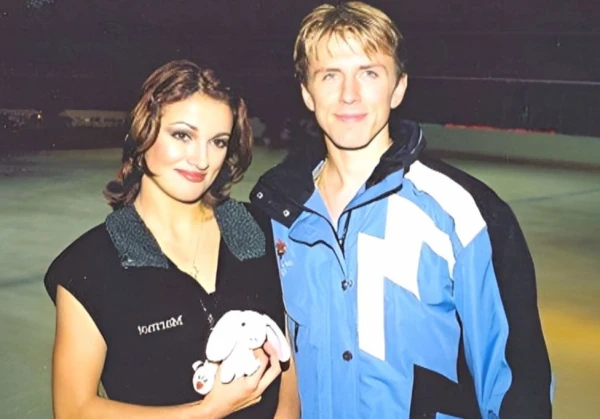
Unfortunately, this is all too familiar to many. Two weeks at the sea, and you return shattered. Or you spend the whole weekend on the couch, and on Monday it seems like you didn’t rest at all. It’s not about you. It’s about the fact that we confuse rest with idleness.
True recovery is not the absence of tasks, but a change of activity, routine, and... mindset. Practitioner of mindful rest and reset Herman Zagumenov helped to understand why standard rest doesn't work.
"Couch" Mode: Why Lying Down Doesn't Equal Recovery
Lying down all day is like expecting a car to refuel itself just by parking it in the garage. The body becomes stiff, the mind foggy, and internal tension doesn’t go away. "The thing is that without movement, blood circulation worsens, and the brain gets less oxygen. As a result, you feel like a vegetable, not a rested person. Want to make your rest time beneficial? Replace 'doing nothing' with light activity: a walk, yoga, swimming. The body needs movement to shed stress," our expert explains.
Information Intoxication: When Social Media Eats Up Your Rest
You lie on the beach or on the couch, but scroll through your feed, respond to work messages, watch series. Don’t think you are resting. When you use gadgets, your brain works just like during work. It doesn’t distinguish between a work chat and interesting information online, and it remains in 'fight or flight' mode: cortisol is at its peak, attention is at its limit.
"Want to regain clarity of thought and a sense of joy in life? Arrange a digital detox: turn off notifications, allocate an hour a day for social media instead of being on them all your rest time. Give your brain real silence, and you will be surprised at how much your well-being and mood improve," advises Herman.
Rest 'Like Everyone Else': Why Someone Else's Program Doesn't Work
Did you go on a tour of Europe because everyone else does? Did you run around attractions all vacation because 'you have to see everything'? If you really just wanted to read in a hammock, such rest will only exhaust you.
"In fact, this way you are not relaxing at all. You are following someone else's script for rest, ignoring your true needs. Your body is here, but your mind is on the 'to-do' list. Ask yourself: 'What do I really want right now?' Maybe I shouldn't go to the museum, but sleep until noon? Remember that true rest is not 'have to', but 'want to'," advises the musician.
Unspoken Stress: When Emotions Accumulate Inside
You endured irritation towards a colleague all year, suppressed fatigue, and pretended everything was okay. Then you went on vacation — and all of it came out in the form of apathy or unfounded anxiety. If you don’t want to ruin your long-awaited rest (or your workdays too), learn to process emotions properly.
Herman: 'The body remembers everything you haven’t expressed and lived through. Rest is a time when accumulated tension demands release. Let emotions out in a way that is acceptable for you. For example, through a conversation with a friend, journaling, screaming into a pillow, or sports. 'Release steam' in a timely manner so you don't have to deal with the aftermath later.'
Lack of Transition Rituals
On Friday evening, you close your laptop, but on Saturday morning your brain is still 'in the office'. You can’t abruptly switch from 'stress' mode to 'relax' mode. A bridge is needed: the brain needs time to readjust.
"Without transition rituals, you physically rest, but mentally you don’t. Create your own work completion ritual. It can be 10 minutes of meditation, a walk after work, or a 'reset' music playlist. This simple action will signal to your body and brain: 'Work is done, now it's time to rest'," advises our expert.
Music as Catharsis: A Concert Relieves Stress Just as Well as a Vacation
At a live concert, you don’t just listen to music; you experience it. The bass guitar hits right in the chest, the drums synchronize with the heartbeat, and the vocalist's voice becomes the voice of all your unexpressed emotions. This impact can be compared to quality psychotherapy.
"While the music plays, your brain finally stops racing with anxious thoughts and simply feels. You sing along with the crowd, jump, laugh, and let go of everything that has built up for months. We leave the concert hall not just tired, but cleansed, as if after a session with a good psychologist or after returning from a successful vacation. Just two or three hours are enough to shed the burden accumulated over many months," the specialist explains.
So What Is True Rest?
Rest is not a pause between work tasks, but an active, conscious process of restoring your resources — physical, mental, and emotional. Your brain is a complex system that needs not just to 'turn off', but to readjust. Fortunately, it doesn’t take much:
-
Change of activity. The brain and body get tired not from work in general, but from the monotonous repetition of the same actions. The key is contrast. 'If you have worked mentally, your brain is exhausted, and your body is tense; you need movement and sensory stimulation. If you have worked physically, your body will be exhausted, while your brain, on the contrary, will start to 'bore'. Then give your body rest, but engage your brain with something interesting,' advises the expert.
-
Mindfulness. The biggest mistake is to rest by template, ignoring the signals of your own body and psyche. True rest always starts with the question: 'What do I want right now?'.
-
Routine: a 'framework' on which rest is built. A chaotic sleep and wake schedule on weekends is a powerful blow to your circadian rhythms. Herman: 'The body goes into a stupor: it doesn’t understand when to be awake and when to sleep. Try to get up and go to bed at roughly the same time even on weekends. The difference shouldn’t exceed 1.5–2 hours. If you went to bed late — don’t lie in bed until noon, better get up and take a nap during the day for 20–40 minutes.'
True rest is not the number of days at the sea, but the quality of your attention to yourself. Stop resting by template. Start listening to what your body and psyche want right now. Sometimes the best rest is not a trip to Bali, but allowing yourself to do nothing without guilt. You have the right to recover. Give it to yourself.













Leave a comment